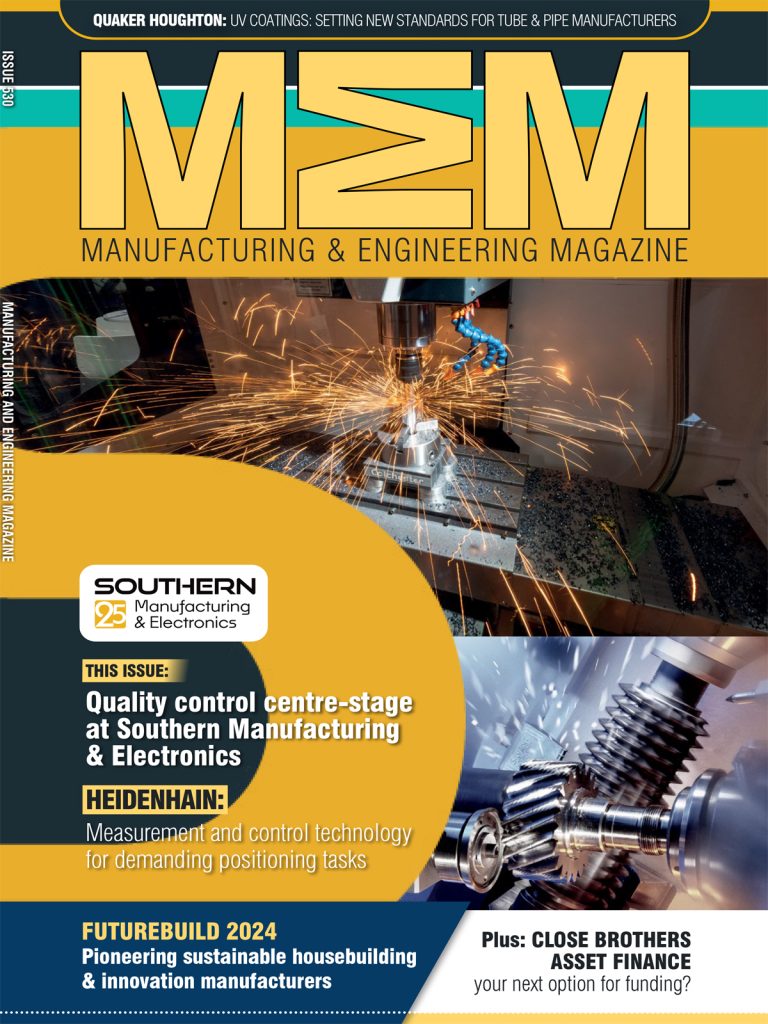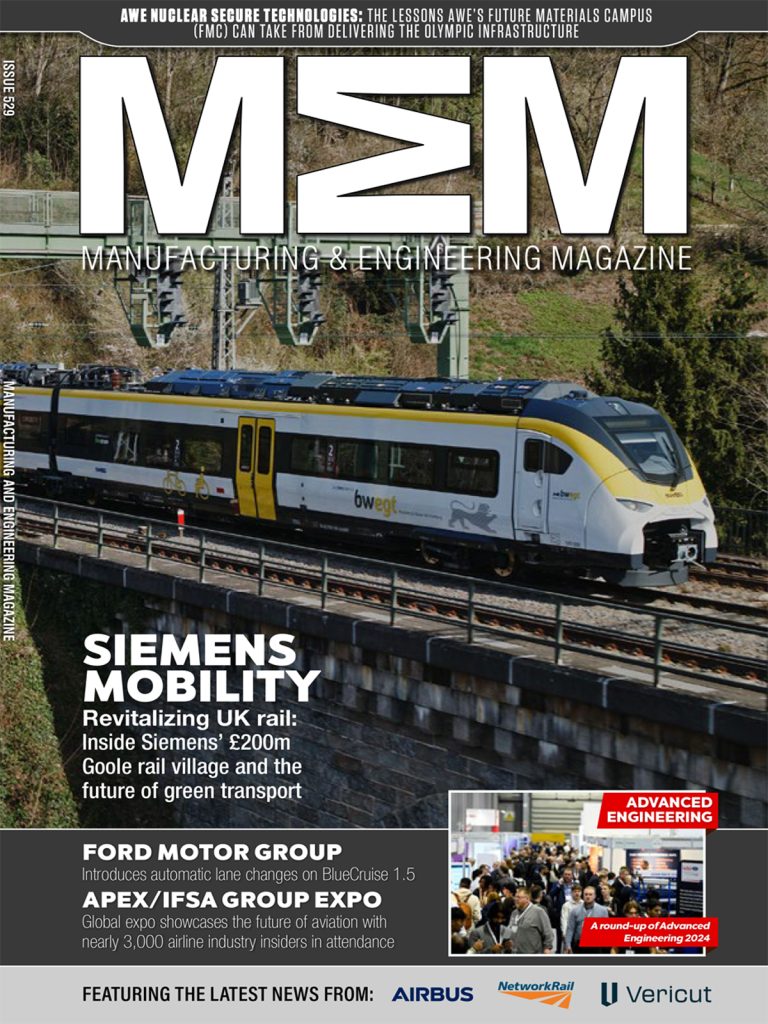Why manufacturers need to invest in digital transformation
Globally, digital transformation in manufacturing processes are moving forward – customers demand more of them, which means they need to invest in gaining that edge, securing growth, improving products and winning in their markets.
Jason Chester is the director of Global Channel Programs at InfinityQS, a company that provides Statistical Process Control (SPC) software and services to manufacturers globally. He has more than 20 years of experience in the enterprise IT industry, and has a background as an industry analyst and writer.
We asked him how businesses can make the best use of technology to increase their productivity, efficiency and effectiveness – to increase profits and ensure long-term success.
With digital transformation, what should businesses be thinking about when moving away from legacy enterprise applications?
There’s a new genre of “intelligent” enterprise applications – it’s about the future of these applications within the business, such as intelligent ERP, intelligent CRM, intelligent marketing automation solutions, intelligence finance, intelligence HR and so on.
If you look at the past 20 or 30 years, large organisations used large monolithic enterprise applications to automate a lot of business processes, picking the low-hanging fruit.
You can walk into manufacturing organisations, banks, insurers and retailers, and the efficiencies they’ve gained from these enterprise applications have already been achieved.
We’re on to diminishing returns – it’s hard to make strides in improvements within the business.
But at the same time, these companies must understand that the markets they are serving are changing dramatically. If you look at manufacturing, there are significant changing consumer trends such as a loss of brand loyalty.
Customers can go online and compare different products from different sources instantly. With sophisticated global logistics, you can get products sent from places such as South American, Eastern Europe and China, almost as easily as we can from our home markets.
Businesses can’t respond to this change with the traditional methods we’ve been using. We’re now moving from an era of automation, which we’ve had for the last two to three decades, to one which I call optimisation.
True optimisation is about advanced planning. Why is it important for manufacturing business leaders to understand it?
Advanced planning is a notoriously difficult and complex problem. “New” technology that is coming to fruition, such as artificial intelligence (AI), big data and the industrial Internet of Things (IoT), can attack these complex optimisation problems in industries like manufacturing and through the supply chain.
Intelligence will be embedded into applications, providing advanced planning capabilities to operators. Cognitive processes and decision-making will become automated, creating intelligent autonomous applications within business.
This is a very significant change that we’re embarking on in the manufacturing sector, giving rise to trends like Industry 4.0 and smart manufacturing.
Sage Business Cloud Enterprise Management
Need better insights into your business? Sage Business Cloud Enterprise Management provides you with fast, simple and flexible business management, helping you to manage your business and boost your profits.
What should manufacturing leaders be considering?
My biggest tip is for leaders is to focus on shop floor processes. Look at the anatomy of a manufacturer in a broad sense – materials and components coming in one end, with finished and semi-finished goods coming out of the other.
A lot of organisations, big and small, have invested a lot in enterprise technology applications in the areas surrounding that – such as Enterprise Resource Planning (ERP), supply chain and distribution logistics.
But when you look at the actual manufacturing process itself, from when a product goes into production on the shop floor, to when the semi-finished goods leave it, it’s incredibly surprising how much manual processes are still being relied on.
I go into businesses almost every week where they’re quite sophisticated from a technology perspective and have invested heavily over the years.
But then it seems to stop at the shop floor – you still have operators walking around with clipboards and paper-based forms, writing machine process parameters or test results from the periodic tests they’re doing for the production process.
That’s incredibly inefficient, and not unlocking the potential these businesses have.
We’ve got manufacturers where this leads to raw equipment effectiveness of only 60% or 70%. There’s almost a glass ceiling to get above that number.
It’s largely because they are relying on highly manual processes where they’re not taking intelligence from materials and production, and not using advanced technology to improve these processes dynamically in real time.
And for manufacturers that stay still, what will happen to them?
There’s an immense price pressure on manufacturers – they need to make processes faster, while creating products which are cheaper and better.
“Promiscuous” customers don’t have that brand loyalty any more, unlike a few years ago when they would tend to the stick with one product. Now if they have a bad experience, they’ll simply choose a different one of equal quality, which may even have a lower price.
There are risks involved in not addressing these challenges. The manufacturer in question wouldn’t necessary stop growing or perform worse but they may become so marginalised that they won’t be able to survive in the future economy.
What’s your advice on digital business transformation?
Businesses should understand that digital transformation shouldn’t be limited to certain areas – it won’t be successful done in this way. You need to look at the business holistically and then put the applications and capabilities in that allow you to achieve your strategic objectives.
Arguably, technology by itself has very little value.
If you look at the iPhone and strip it down to its constituent parts, it’s probably worth a few dollars. But people are happy to spend hundreds, if not thousands of dollars on an iPhone, because of the capability it gives them, which is where the value is created.
Digital transformation needs value creation, where you go out to procure capabilities, not just run applications.
With technology, there’s no silver bullet you can deploy that will transform your business. It’s how you apply the technology solutions within the business that will decide whether it is truly transformative.
You can have a smart factory and a highly transformed digital business but if you don’t have a business or production innovation model to match market needs, then it’s going to be a very expensive waste of time.
How receptive are C-suite executives to technology, particularly in manufacturing?
“Younger” types of C-level executive, who are receptive and clear about what technology can do for their businesses, are coming to senior positions in large manufacturing organisations.
Previously CxO people might have had a history in traditional manufacturing, and not seen the opportunity quite as well. A fresh breed of senior managers and operators are very skilled in IT. They come into manufacturing and see there isn’t visibility within production processes. That’s driving big change.
In my own conversations with C-level executives, they tend to focus on intelligence and analytics, whereas previously it might have been about process management such as how to make supply chains more efficient or automating processes such as invoice generation.
The conversation has moved from how we can use an incredible asset like information, whether it’s within the four walls of the company or through the integration of external data.
Should businesses go all-in with the cloud?
I absolutely believe passionately that cloud will be the de-facto computing model.
The concept of people housing data in their own infrastructure will almost be as bizarre as suggesting that manufacturers generate their own electricity.
That’s not the industry that they’re in – they’re not technology businesses that make money by creating systems, applications or data centres. Leave that technology expertise to people that make a living out of delivering technology as a utility.
AI is only successful through massive data sets, and you need to store massive amounts of data. You need massive computing power but you don’t need it all the time.
Manufacturers might only need it, for example, if they’re creating a simulation environment or a modelling routine. Why shouldn’t they just pay as they use it rather than pay for very expensive resources as we used to do in IT?
I worked in IT management as a developer, and that’s what you did – you had a rack of servers in a server room and data centre. I think that concept will become absolutely alien in the next few years.
I’ve had conversations with some large global manufacturers where we’ve talked about cloud, and their answer has been that they are not cloud-ready and not considering it, with concerns about risk and availability.
Then I have a call six months later where the chief information officer (CIO) tells me they have a problem in that they’ve become a cloud-first business, even though they have systems still running in their own data centre.
Manufacturing & Engineering Magazine | The Home of Manufacturing Industry News














